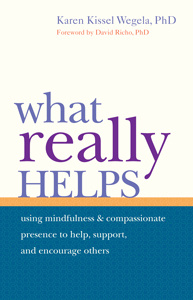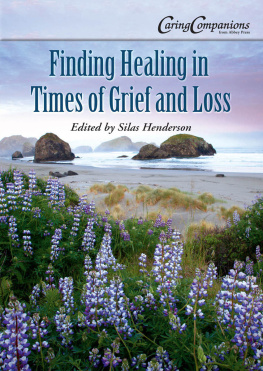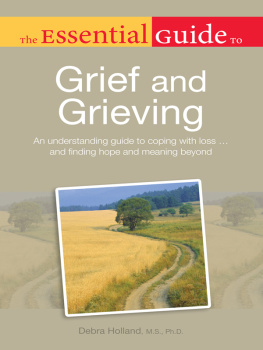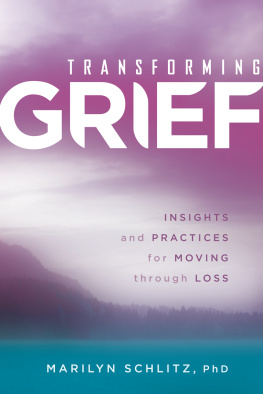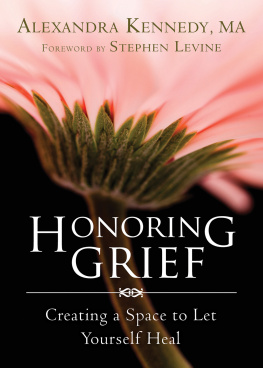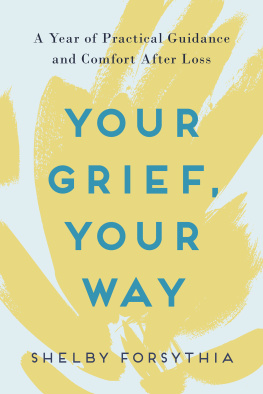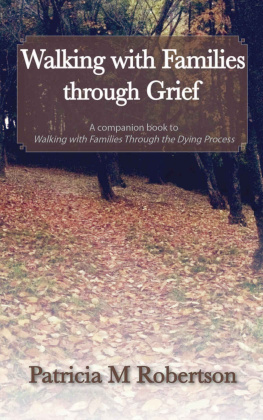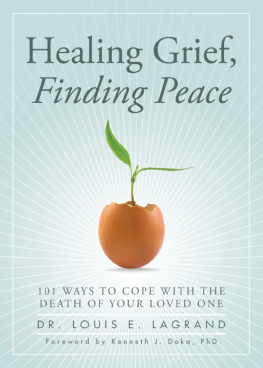Author Susan A. Berger offers a fascinating new view of what happens to people who lose loved ones. The Five Ways We Grieve helps us to discover who we have become in order to give our lives meaning and purpose.
Patriot Ledger
Offers a fresh new approach to understanding and coping with the major losses every human being experiences. Dr. Susan A. Berger gives bereaved people a useful tool for interpreting their responses to a loss and creating a new normal for their lives.
Bob Deits, author of Life after Loss
A treasure trove of penetrating insights. Dr. Susan A. Bergers lucid and thoughtfully researched writing contains personal experiences, clinical examples, and penetrating questions to ponder. Although she takes us deeply into the realm of human torment, the essential message is one of hope as she assists us in transforming tragedy into growth. Dr. Berger will bring needed solace to many grieving hearts.
Rabbi Earl A. Grollman, DHL, DD, author of Living When a Loved One Has Died
This book offers hope with a planin the form of new ways to recognize, define, and focus on our changed identity and worldview after loss. As a child therapist specializing in illness and loss, I found this book immediately helpful.
Sallie A. Sanborn, MS, child therapist and contributor to The Goldfish Went on Vacation
ABOUT THE BOOK
In this new approach to understanding the impact of grief, Susan A. Berger goes beyond the commonly held theories of stages of grief with a new typology for self-awareness and personal growth. She offers practical advice for healing from a major loss in this presentation of five basic ways, or types, of grieving. These five types describe how different people respond to a major loss.
The types are:
- Nomads, who have not yet resolved their grief and dont often understand how their loss has affected their lives
- Memorialists, who are committed to preserving the memory of their loved ones by creating concrete memorials and rituals to honor them
- Normalizers, who are committed to re-creating a sense of family and community
- Activists, who focus on helping other people who are dealing with the same disease or issues that caused their loved ones death
- Seekers, who adopt religious, philosophical, or spiritual beliefs to create meaning in their lives
Drawing on research results and anecdotes from working with the bereaved over the past ten years, Berger examines how a persons worldview is affected after a major loss. According to her findings, people experience significant changes in their sense of mortality, their values and priorities, their perception of and orientation toward time, and the manner in which they fit in society. The five types of grieving, she finds, reflect the choices people make in their efforts to adapt to dramatic life changes.
By identifying with one of the types, readers who have suffered a recent lossor whose lives have been shaped by an early lossfind ways of understanding the impact of the loss and of living more fully.
SUSAN A. BERGER, EdD, LICSW, counsels people who are confronting significant loss and other life changes. She also trains professionals in using her unique approach to helping the bereaved. She has twenty-five years experience in the health and mental health fields as a researcher, practitioner, administrator, and consultant in both Massachusetts and Washington, D.C.
She lectures widely in professional healthcare, business, government, and university settings. She has held faculty appointments at three colleges, teaching courses in human behavior and psychology. She has also served as a hospice volunteer. Dr. Berger is herself a survivor of early parental loss.
Sign up to learn more about our books and receive special offers from Shambhala Publications.

Or visit us online to sign up at shambhala.com/eshambhala.
The
Five Ways
We Grieve
Finding Your Personal Path to Healing
after the Loss of a Loved One
SUSAN A. BERGER

Trumpeter
Boston & London
2011
Trumpeter Books
An imprint of Shambhala Publications, Inc.
Horticultural Hall
300 Massachusetts Avenue
Boston, Massachusetts 02115
www.shambhala.com
2009 by Susan A. Berger
Cover design by Nita Ybarra
I Never Said Goodbye copyright 1989 by Samuel A. Livingston
Excerpt from Eileen McNamara, Two Legacies in Blossom 2003 Globe Newspaper Company. Used by permission.
Excerpt from The Five Stages of Grief, from The Five Stages of Grief by Linda Pastan, 1978 by Linda Pastan. Used by permission of W. W. Norton & Company, Inc.
Excerpt from Her Family Will Never Be the Same, by Suzanne Laurent, staff writer, Derry News, published Aug. 26, 1994. Used by permission.
All rights reserved. No part of this book may be reproduced in any form or by any means, electronic or mechanical, including photocopying, recording, or by any information storage and retrieval system, without permission in writing from the publisher.
The Library of Congress catalogues the hardcover edition of this book as follows:
Berger, Susan A.
The five ways we grieve: finding your personal path to healing after the death of a loved one / Susan A. Berger.1st ed.
p. cm.
Includes bibliographical references and index.
eISBN 978-0-8348-2227-6
ISBN 978-1-59030-697-0 (hardcover: alk. paper)
ISBN 978-1-59030-899-8 (pbk.: alk. paper)
1. BereavementPsychological aspects. 2. DeathPsychological aspects. 3. Grief. I. Title.
BF575.G7B476 2009
155.937dc22
2009004270
This book is dedicated to my parents,
Dr. Martin Arnow and Naomi Arnow,
because, as a result of their deaths,
I learned the lesson that Diogenes
so simply expressed:
Nothing endures but change.
TO ALL THOSE WHO HAVE ACCOMPANIED ME on this life-changing journey, I cannot express adequately my deepest appreciation for your support, love, and belief in my ideas and this book, which brings them to realization.
For the participants in my research, the more than sixty amazing people who shared their poignant and profound stories of loss and growth with trust and openness, I learned so much from you and hope that readers of this book benefit as well from your experiences.
To Reverend Rosemary Lloyd, Associate Minister, First Church in Boston, Unitarian Universalist, for her insights about the role of the Church in dealing with loss; Rabbi Karen Landy, Staff Chaplain, Hebrew Senior Life, Roslindale, for providing a contemporary perspective on post-Holocaust God; Thomas A. Welch, Director, Institute of Education and Professional Development, Welch Healthcare and Retirement Group, Norwell, Massachusetts, for his wisdom and support in formulating my understanding of worldview.
To my wonderful agent, Janet Rosen at Sheree Bykofsky Associates in New York, who believed that my book would help lots of people and who tenaciously pursued many publishers until she found it the perfect home.
To my editor, Emily Bower, at Shambhala Publications, who believed in the message my book would bring to readers and the contribution it would make to the field of bereavement, as well as the assistant editor, Ben Gleason, and the copy editor, Susan Cohan, whose contributions made it a better book.
To Grace Talusan, my magnificent, supportive, thoughtful editor, who helped position my book proposal with my sample chapters, offered valuable editing and input as I wrote various chapters, and always seemed to know what I needed to write and how to help me do so.
Next page
